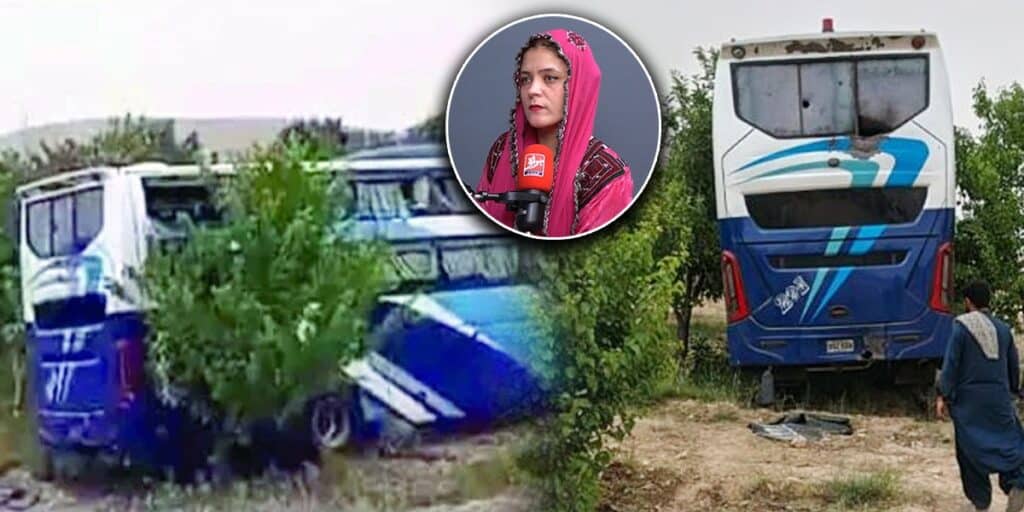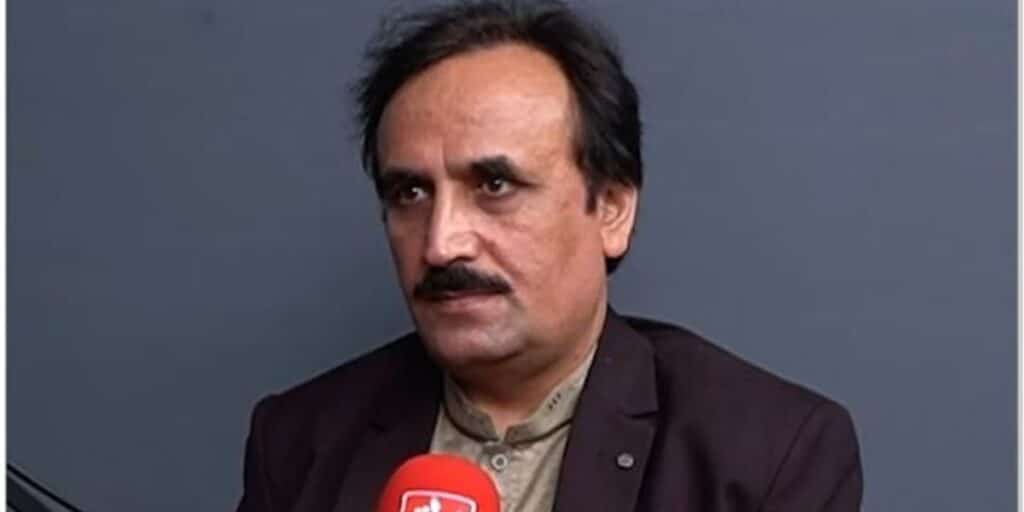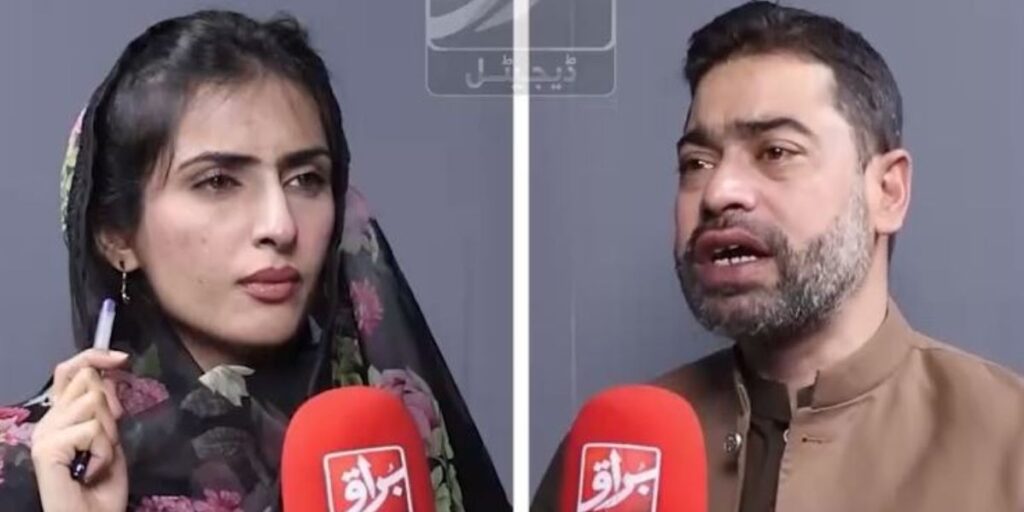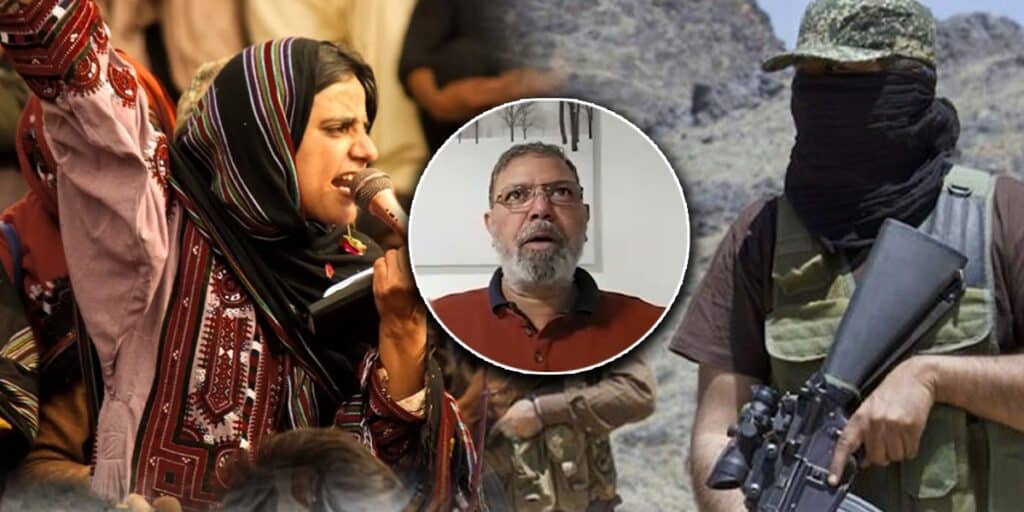By: Tania Bazai
Over the past two weeks, two horrific attacks have targeted passenger buses in Balochistan. In both cases, the same tired, deceptive narrative was pushed: that the victims were “agency men,” covert security operatives. But I ask—how long will these lies continue? How long will the blood of innocent civilians be smeared with propaganda to justify murder?
Let’s talk about the recent bus attack in Kalat. The attackers claimed they had killed military officers. But let’s be honest—why would army officers be traveling in a local passenger bus? Has our military fallen so low that commissioned officers now ride cramped local buses, shoulder-to-shoulder with regular travelers? This claim is not just false—it’s laughable. No such officer was on that bus. Every single passenger was a civilian—laborers, qawwals (Sufi singers), common men just trying to get home.
If these groups have any proof that military men were among the dead, let them bring it forward. They won’t, because they can’t. What they don’t want you to see is the heartbreaking reality: three people were martyred and thirteen others injured. Two of the slain were brothers, members of a qawwali group, who had traveled all the way from Karachi. And that is perhaps the most telling part—this wasn’t just an attack on Punjabis. It was an attack on Sindhis, too. And by extension, it was an attack on Pakistan.
For years, we were told “Punjabis are the enemy.” Now the narrative has shifted—“Sindhis are the enemy.” Tomorrow it could be Pashtuns, or Saraikis. The truth is, the only real “crime” these people committed was that they weren’t born in Balochistan. And for these militants, that’s enough.
This hatred is fueled not by ideology but by paranoia. I’ve seen how obsessed these anti-state elements are with the Pakistan Army. People like India’s Major Gaurav Arya can’t sleep without dreaming of “Punjabi soldiers.” They’ve built their entire existence around vilifying our military. It’s no longer about facts—it’s about fear, and they want the rest of us to live in that same fear.
And every time a tragedy strikes, they weaponize it. They try to paint every victim as an informant or undercover operative. It’s the same playbook they used in Loralai, and now again in Kalat. But let me be clear: our military does not travel in public buses. Our soldiers are professionals. They don’t operate like amateurs, hopping on local transport unprotected. They conduct operations with planning, precision, and discipline.
What pains me most is the silence from so-called human rights activists and organizations. When a militant is arrested or killed, the whole world erupts in outrage. But when civilians—unarmed artists, passengers, laborers—are gunned down? Not a word. No condemnation. No candlelight vigils. Because these innocent victims don’t fit the pre-approved narrative that the West wants to hear.
In today’s Pakistan, the human rights label has become a business. If you can cry foul loudly enough and label yourself a victim, international platforms will welcome you with open arms, no questions asked. That’s why these militant groups cry “enforced disappearance” every time one of their own is killed in an encounter. But these are not missing persons—they are active combatants. Many are hiding in Iran, some in Afghanistan, others in remote mountain hideouts. They are part of a well-funded, well-organized proxy network.
And yes, this is a proxy war. India’s fingerprints are everywhere. Just recently, during the SCO conference in Astana, China directly confronted India and urged them to stop funding and supporting terrorism in Balochistan. India declined to sign the anti-proxy warfare agreement. Why? Because they can’t commit to peace while their entire strategy depends on chaos.
If India truly walked away from its proxies, Balochistan would blossom. Investment would flow in. Jobs would be created. Gwadar would thrive. But that isn’t what India wants. It fears a stable, united, and prosperous Balochistan because that would strengthen Pakistan.
And now, even so-called Baloch activists are appearing on Indian television channels, praising Indian army officers like Gaurav Arya as “leaders,” “sardars,” and “nationalists.” Is that not proof enough of who is pulling the strings? If these people truly believed in their cause, why would they need Indian intelligence handlers and Indian media platforms to amplify their voice?
We are told to believe they’re fighting for freedom. But what kind of freedom begins with the cold-blooded murder of musicians? What kind of liberation involves dragging passengers off a bus and executing them in the name of nationalism?
What Balochistan needs is a decisive operation, like those launched in Swat and Waziristan. Intelligence-based raids are ongoing, but they are not enough. These militants are hiding in mountain strongholds, relying on the silence of their sympathizers and the funding of their foreign masters. But their time is running out. The state knows where they are. The technology is in place. A reckoning is coming.
And when it does, we won’t just reclaim the mountains—we’ll reclaim our narrative, our dignity, and our peace. Until then, we must speak the truth, even if it makes the enemies of peace uncomfortable.





